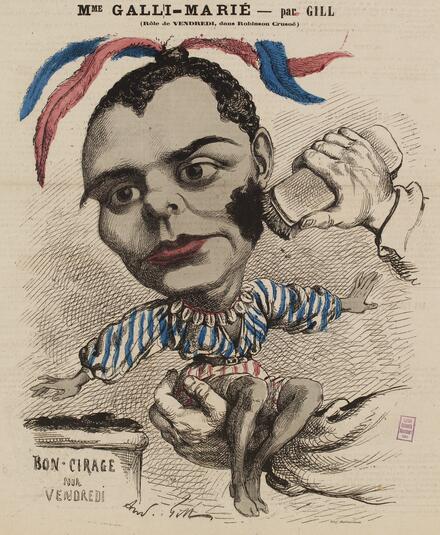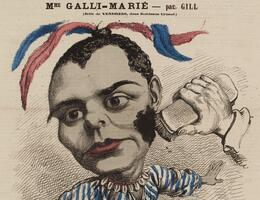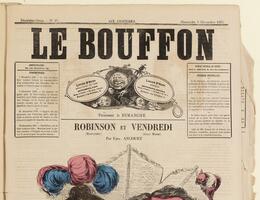Robinson Crusoé

Opéra comique in three acts and five scenes premiered on 23 November 1867 at the Opéra-Comique.
The libretto by Eugène Cormon and Hector Crémieux was taken from the novel of the same name by Daniel Defoe, published in 1719. By 1720, the book had been translated into French and several successive versions appeared throughout the 18th and 19th centuries, clear proof of the popularity of the adventures of Robinson Crusoe and Man Friday during the Enlightenment and the Post-Revolutionary period in France. The novel also gave rise to some stage adaptations: before Offenbach’s opera, the famous playwright René-Charles Guilbert de Pixérécourt had staged a Robinson Crusoé subtitled a “mélodrame en 3 actes, à grand spectacle”(epic melodrama in 3 acts) to music by Alexandre Piccini and Gérardin Lacour at the Théâtre de la Porte-Saint-Martin on 10 Vendémiaire Year XIV (2 October 1805). Despite a first-class cast—the role of Vendredi was sung by Célestine Galli-Marié—the opera by Offenbach, Cormon and Crémieux was only a qualified success and was withdrawn after only 32 performances. In Le Figaro of 25 November 1867, the critic Eugène Tarbé criticised the work’s overlong passages: “There is too much dialogue and too much music”. He did however praise the considerable musical quality of the score and drew attention to the successful so-called “pot-au-feu” scene from Act Two. In a remarkable twist of fate, the man preparing the ghoulish feasts of human flesh is none other than an acquaintance of the Crusoe family. And the “savages” had become cannibals by following the advice of a missionary: they had eaten nothing but plants and vegetables before that.
Documents and archives

Caricature, Press illustration
Célestine Galli-Marié en Vendredi dans Robinson Crusoé d'Offenbach (par Gill)

Caricature, Press illustration


